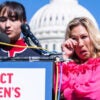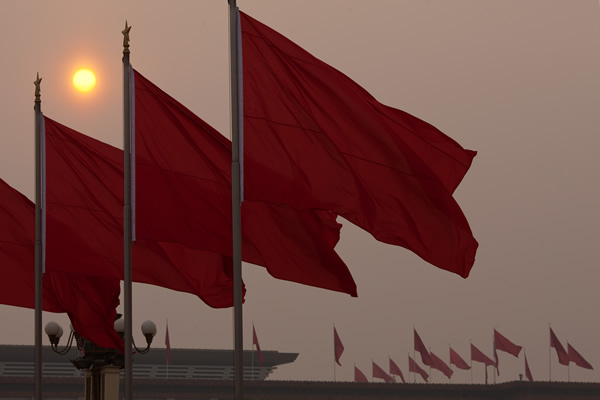The annual meetings of China’s National People’s Congress (NPC) start March 5. This year is more important than most: The new Communist Party leadership introduced at last fall’s Party Congress receive their government positions.
We all know the top slot (president), and we are all but certain of the #2 and #3 slots. But the appointments of vice premiers and cabinet ministers will be heavily scrutinized as signals of the new Party leadership’s direction. It is worth noting these appointments, but analysis can lead observers astray.
When it comes to economic reform, the real proof of direction is action. No decisive economic action will occur at the NPC. Policy direction will not begin to be clear until the run-up to the fall Party plenary meeting.
The recent pattern has been for the Party leadership to turn over in full every 10 years: 1992, 2002, and 2012. Changes have occurred both before and after the Party shift.
The changes before are anticipatory. In 1992, Deng Xiaoping’s famous “Southern tour” established that the incoming leadership would preside over a restart of economic reform. In 2002, credit expansion by state banks presaged an explosion in fixed investment and troubling economic imbalances.
It’s more difficult to read changes in 2012. There was certainly a welcome, if overdue, recognition of the fundamental problems in the Chinese economy. But there was little action. Deng’s credibility in 1992 was unimpeachable, but not so with the current group. Their policy direction is unclear.
As a result, the NPC itself can’t matter that much. There will be fuss over appointments to specific positions, but almost all of these can be spun in different ways. For example, Zhou Xiaochuan is apparently being retained as head of the People’s Bank. The People’s Bank has been squarely in the reform camp, so Zhou’s retention can be seen as pro-reform.
But Zhou’s term has coincided with the reform camp losing almost every political battle, so perhaps he is seen as an easy mark by statists. Or perhaps his retention is a payoff for unhappy reformers who’ve lost yet another debate. Or perhaps his retention is only temporary. And so on.
The proof of policy choices in this case cannot come at the NPC but must come afterward, heading toward the Party plenum, which typically occurs in November. In 1993, the plenum gave form to the then-dynamic new concept of a “socialist market economy.”
In particular, it mandated a round of reform of state-owned enterprises, which enabled the state sector to begin to shrink in the middle of the decade.
In unhappy contrast, the 2003 plenum laid out a sweeping statist industrial policy (though few observers wanted to acknowledge this for some years). Foreign technology was to be brought in through strategic opening of markets, domestic capacity enhanced via preferential policies, and then industries consolidated on a few large state players. It is the legacy of 2003 that we are still living with today.
After the NPC, there will be plenty of guessing about economic reform. After the fall plenum, we’ll have a much better idea.































